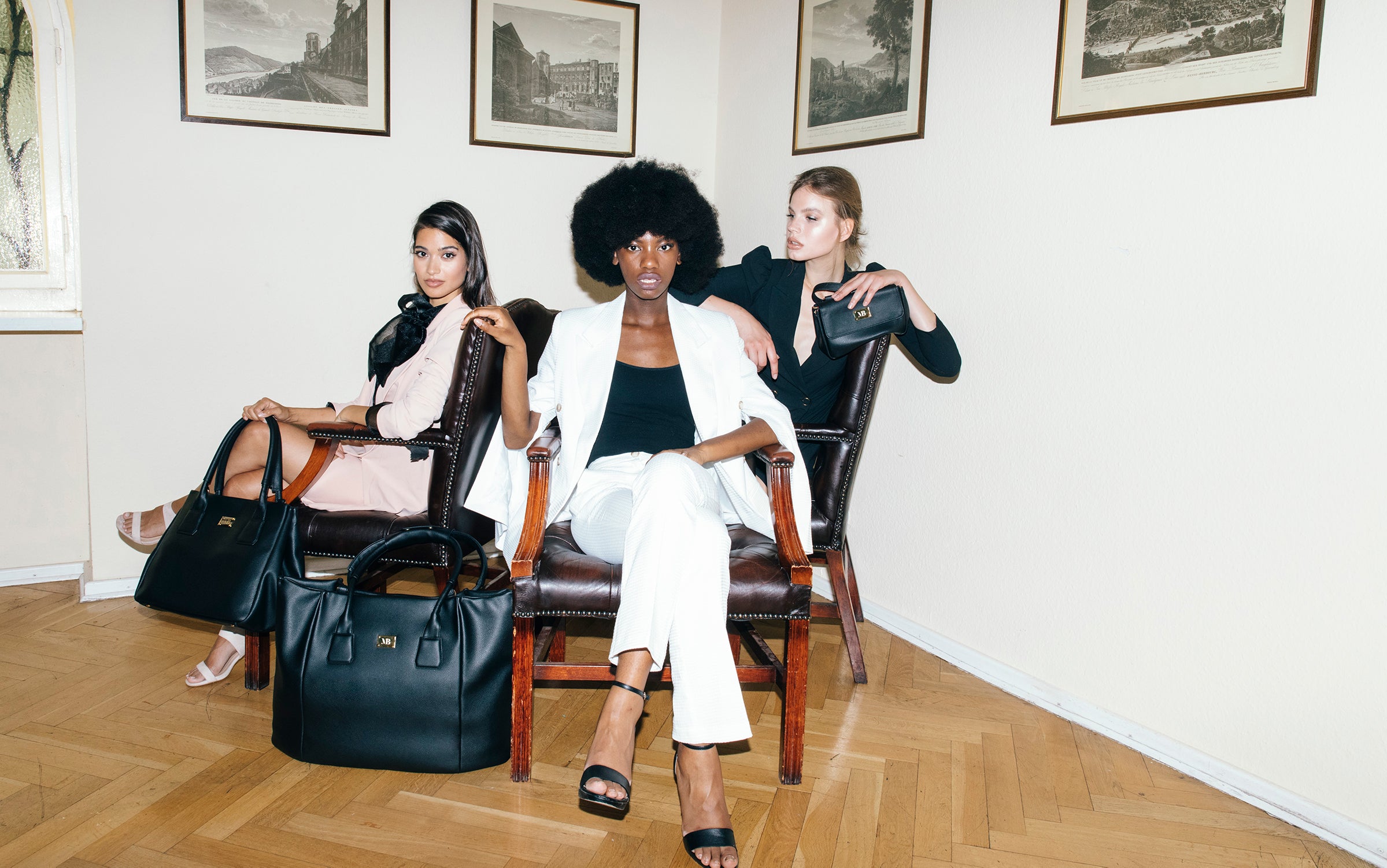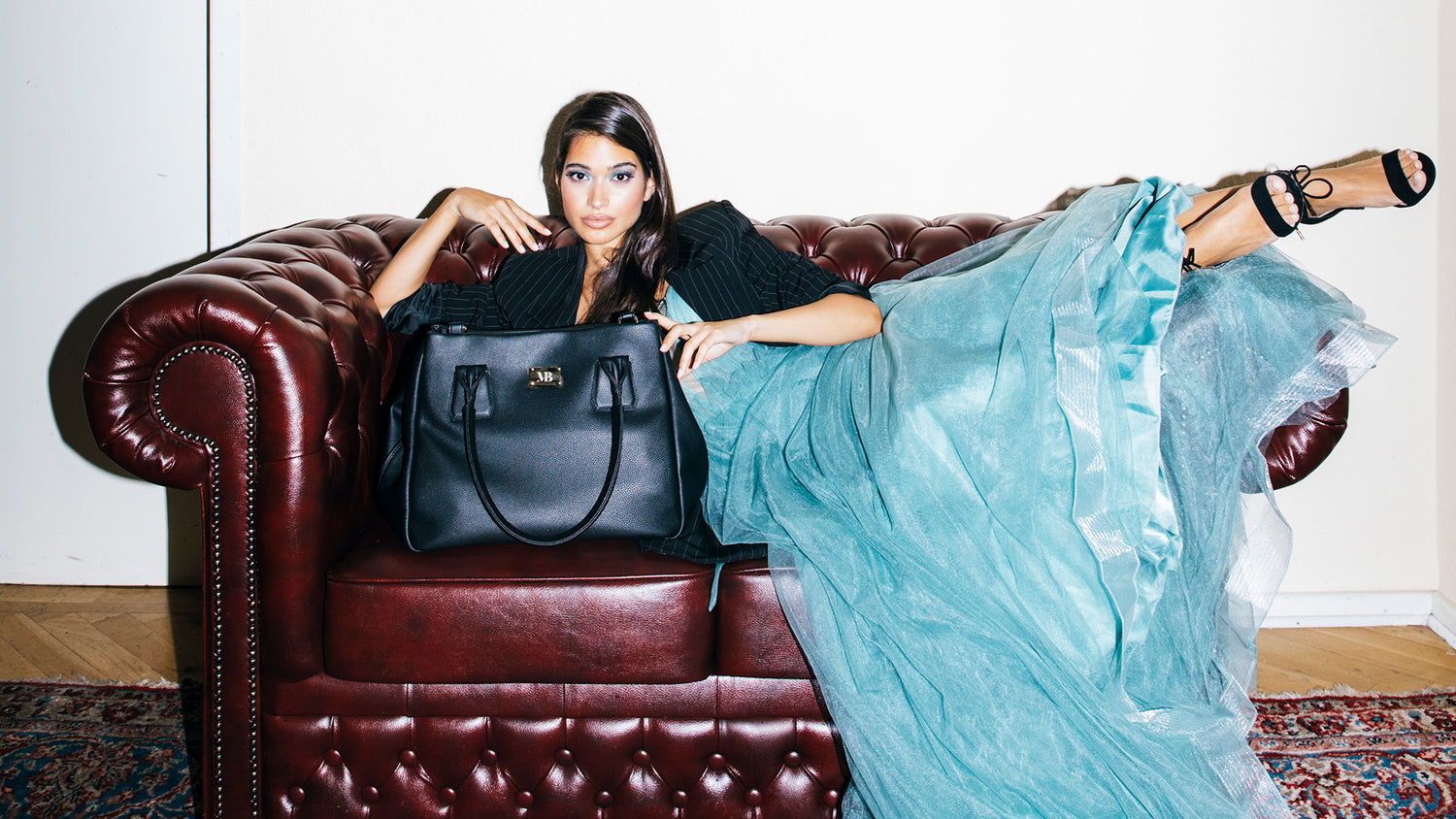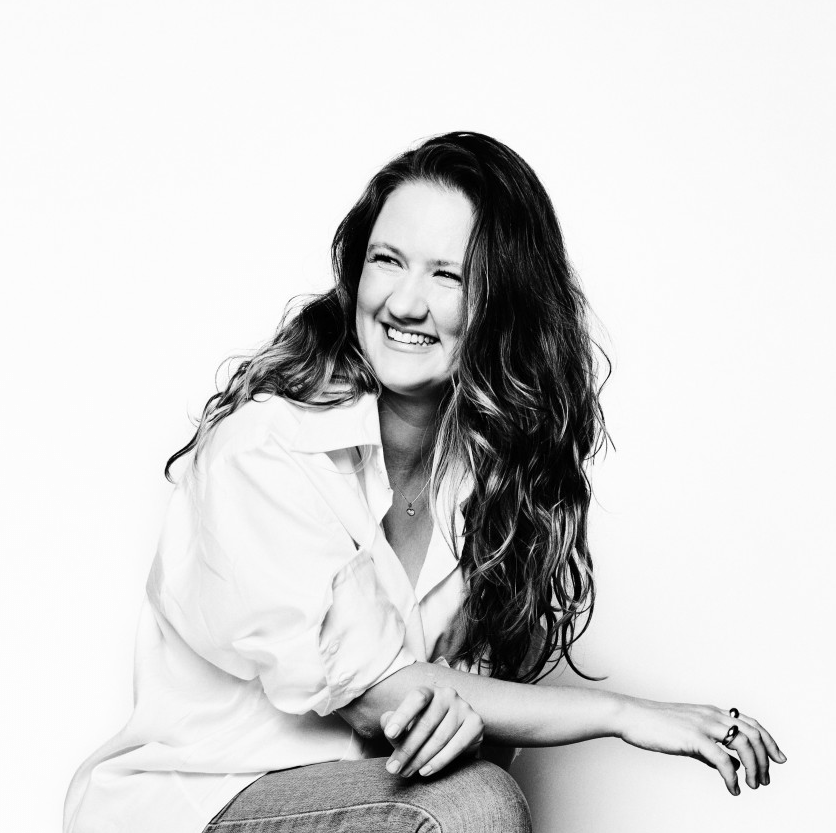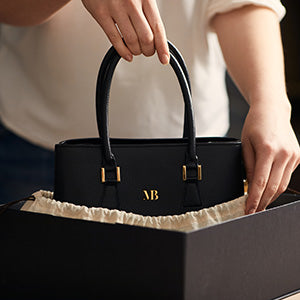Even to this day, most start-ups are still founded by males. For years, the proportion of male founders in Germany has been significantly higher than that of their female counterpart; in 2020, around 84% of all founders were male . Much potential is lost through such an uneven distribution . In June 2018, Melina Bucher founded her label of the same name during her master’s degree and has been pursuing her dream of a sustainable fashion world without animal suffering ever since. From that point onwards, she has been developing handbags that make a statement - high-quality products, completely vegan and sustainably produced. Besides her role as entrepreneur, she is teaching sustainable fashion management at universities in Heidelberg and Reutlingen and is mentor in the first German textile accelerator program. In celebration of International Women's Day, she talks about experiences as a female founder and the special challenges women have to face when searching for funding and investors.
Frankly, I often find it difficult to actually recognise discrimination against me, even if it is blatantly obvious and completely in my face. Handbags are still, to the largest part, female territory. Investors, of which many are (older) males , are able to relate less to this market, as it does not fall within their sphere of interest or influence. When I am let down by a potential investor, I sometimes cannot identify whether the reasoning behind the rejection was because I am a female, or simply because my field of interest does not align with theirs.
Due to these experiences, I have shifted priorities when delivering pitch presentations; nowadays, I try and focus on the technological aspect of our products, for example how our supply chain is based on blockchain technology, and can, through this, notice a clear shift in interest in male investors. On the other hand, female investors often understand the products themselves and their respective field better, but unfortunately, they rarely sit in the committees with decisive power. Studies also show that there actually is a gender bias in pitch rounds: Male founders are asked much more often about their vision and the intangible, while females have to elaborate more on the tangible, such as their current customer base and specific financial forecasts . The way the founders are assessed is also vastly different; while men who start a company are called brave or willing to take risks, women are naive or inexperienced . And, of course, you always come across people who would rather talk to a man than to a woman, starting with bankers and ending with producers abroad.

Melina Bucher at a pitch event.
Over and over again, it is the small things that stand out, such as noticing that only the e-mails from my male colleagues and counterparts being answered or clients only directing eye contact to other men during a conversation. Sometimes, I do feel like I am not taken seriously enough or seen as not qualified enough, as business questions are usually addressed directly to my partner Dominik, even though I have the same academic background as him.
However, I believe society plays a big part in perpetuating this problem: I have definitely made the observation that the sectors that are more feminine-dominated are more likely to be ridiculed in our society and that their new products are not perceived as real innovations. I have often been told that the fashion and beauty industries have no big impact; these are industries worth billions! Nevertheless, start-ups in these industries and their founders are not taken as seriously as the developers of the next great app or the inventor of the next technical application. For example, I can still remember the headlines in the media when Kylie Jenner overtook Marc Zuckerberg as the youngest self-made billionaire with her cosmetics brand. Instead of focusing on her individual successes, her fame and fortune was largely accredited to her shapely figure and the fact that she came from a wealthy money. That really frightened me, and I ask all of us to reflect on our own thought patterns regarding cases such as hers.
Even today, women are still at a societal disadvantage. Women are often attributed with having the crossroads between professional success and starting a family. I believe that this is the thought that compels not only HR departments, but also the women themselves, to question the legitimacy of their career trajectory.
Above all, I believe that the fact that most high-ranking positions are held by males is the greatest gatekeeper. People naturally want to surround themselves with like-minded and likewise individuals, those you can easily identify yourself with. Thus, one would also tend to hire those similar to oneself. Aside from that, I also have the feeling that men are more willing to take risks, especially when it comes to starting a company. The women I have met, on the other hand, are much more risk-averse, often have to think everything through and have the feeling that they have to work twice as hard because they would not be taken seriously otherwise.
An MVP will probably only rarely stem from these conditions. As mentioned above, I believe that our societal norms are the centre of many of the barriers for females. We identify strongly with our own gender and everything that is defined through it in our society; moving on from classic and modal societal roles and fighting off stereotypes is not an easy task.


Melina Bucher designs bags for strong personalities. Female empowerment and leadership plays a huge role in her collection.
I find it very intriguing that the majority of founders and designers in the fashion industry are male, although most people associate said field much more with women and perceive it as feminine. Even at fashion-related events, the speakers are often male. With this, I think encouraging women in the industry would go a long way. I do not think that hard-fixes such as a female quota within the industry are the best long-term solutions to the underlying problems. Rather, something that would really help is to set positive examples, to give successful women a platform and to shine the light on them, to involve more women in discussions and to give them the courage to openly and unabashedly express their opinions. In that area, there is definitely still a lot of room for improvement. Particularly as an entrepreneur, you have the opportunity to organise your time freely and combine work and family on your own terms - without having to conform to a higher-up’s expectations.
What definitely needs to improve are the funding conditions in Germany; technology-oriented founders are promoted disproportionately in Germany, and if these fields are dominated by males, then logically fewer women receive funding and the help they need. In addition to this, women only make up 12-29% of the decision-making bodies on funding. Focusing on the good, however, the fashion industry is already becoming more diverse in a plethora of areas and to me, that is already a huge step forward. As an example, we now celebrate a much larger range of ethnicities, body shapes and beauty standards across the board.

For my specific product, I think it is greatly beneficial that I am as detail-oriented and obsessively creative as I can be. Every male I talked to about this at some point told me that no customer will notice the detail or a tiny bit that isn’t vegan won’t hurt - but I was always confident enough to stand up for my values and my ideals, and I'm sure that these subtleties will be appreciated by the customer and will help make my product stand out just that bit more.
Something else that I have noticed is that men don't like to ask for help, while I, on the other hand, along with most other women, am not afraid to ask people with more know-how for guidance. This is a clear advantage and has often helped me in many situations. Furthermore, I am very communicative and find it easy to network with others. In the past two years, I have been able to find great mentors and at the same time support many start-ups myself as their mentor.
As a founder, you naturally enjoy some privileges over being employed, with the biggest for me being the fact that I can pick and choose and piece my team together myself in such a way that I can thrust women into the role of role models. In addition to that, I love having complete creative freedom of choice over my own company.


Melina Bucher with her dog Elay.
If you have a burning passion for something, whatever that is, purse it! If you want to start a value-oriented, sustainable company and people tell you that it is not scaling quickly enough and that the margins are not large enough – do not let yourself be unsettled and rattled. Not every start-up has to become a million-dollar business overnight to be considered a success, but women-run companies have all the potential in the world to achieve that if they want to!
It is also extremely important to surround yourself with the right people. Men like to celebrate their successes and themselves; women support each other far too sparingly! Many female founders are extra tough on themselves and often are too scared to tell others about their ideas, as they are afraid of being judged. Honestly, with my company, I want to change the fashion industry sustainably and perpetually avoid animal suffering. Ignoring the few people in my immediate vicinity who laughed at or even sneered at the idea. Surround yourself with people who believe in you and who have a positive mindset. It may take a while, but all great things do.
Of course, this does not mean that critical feedback should be neglected; on the contrary, take it in and internalise it. However, it is important to understand criticism for what it is and not let it get you down and make you give up prematurely. Ideas take a lot of time and a lot more energy to materialise; a lot of hard work lies behind those involved in a passionate project and everyone should be aware of that. If you can combine your passion with your professional work, it makes everything much more fun! Just remember: earning big money shouldn't be the fundamental motivation behind the start-up.
Are you confronted with clichés as a woman? Learn to play with it. As a blonde, made-up and styled woman, I am now making fun of the fact that men often underestimate me at the beginning of a conversation, because, nowadays, the moment I am allowed to showcase my expertise, they are all the more astonished. That should for sure not be the case, of course - but I have learned to spin it in a positive light and use it for my advantage.



